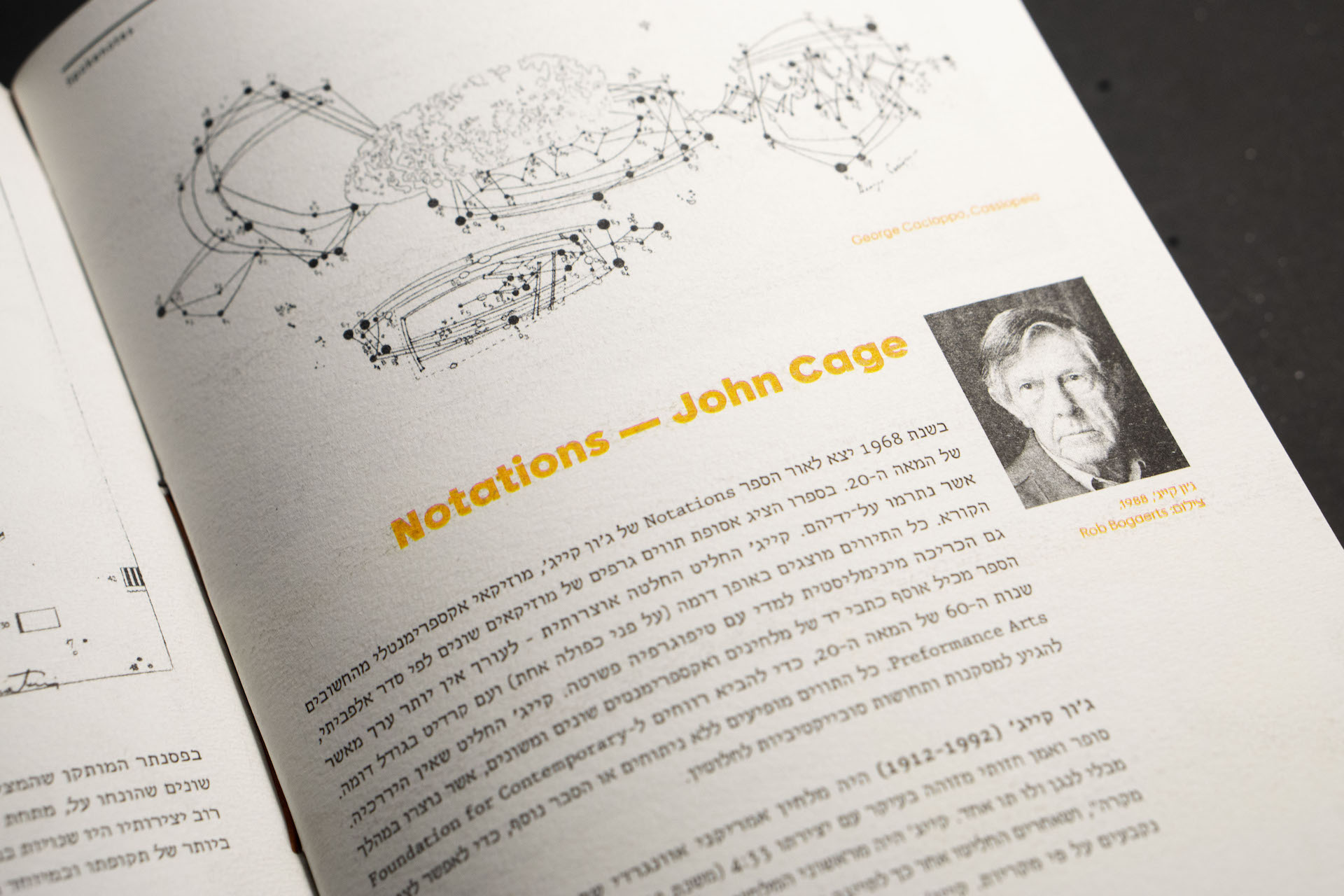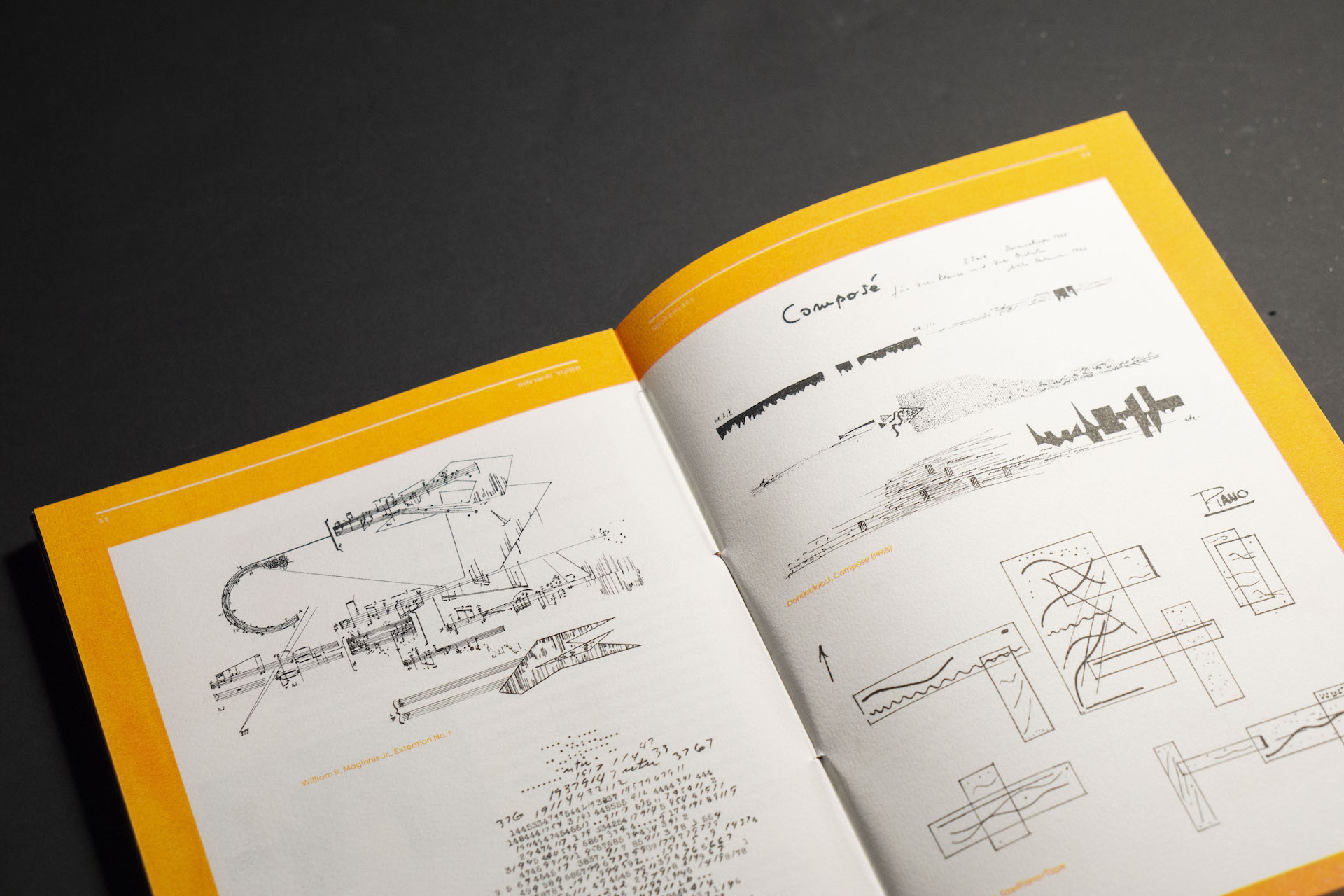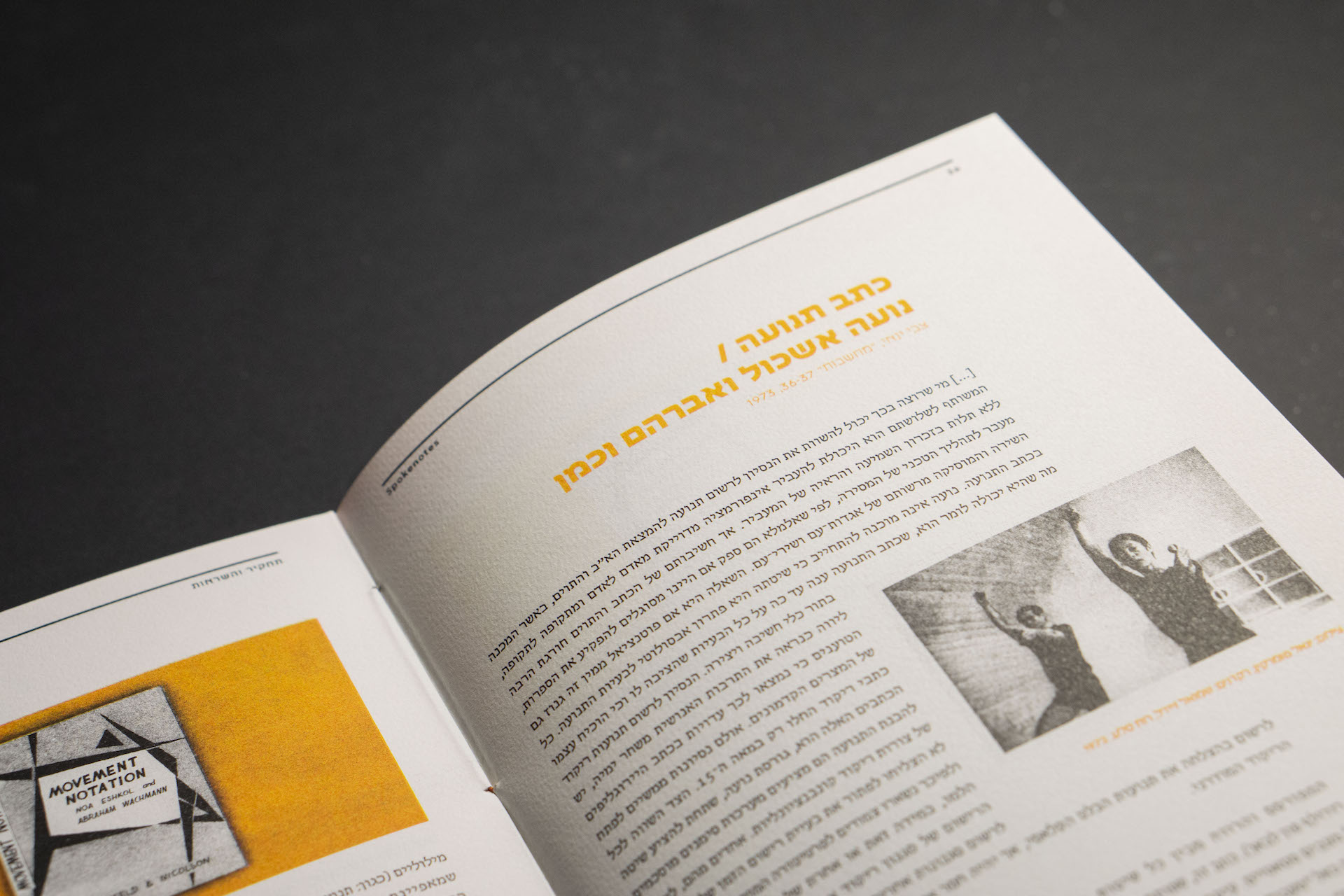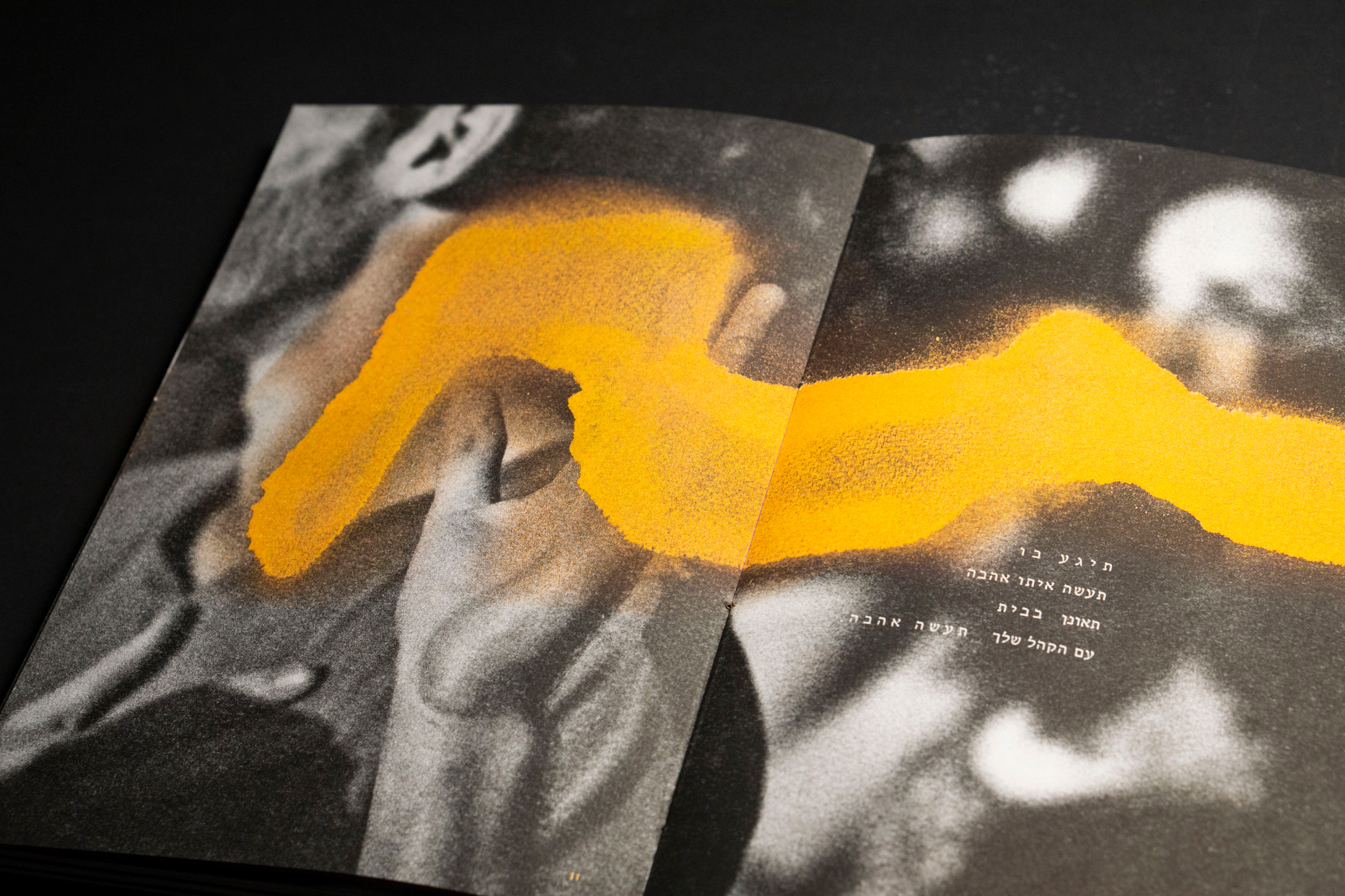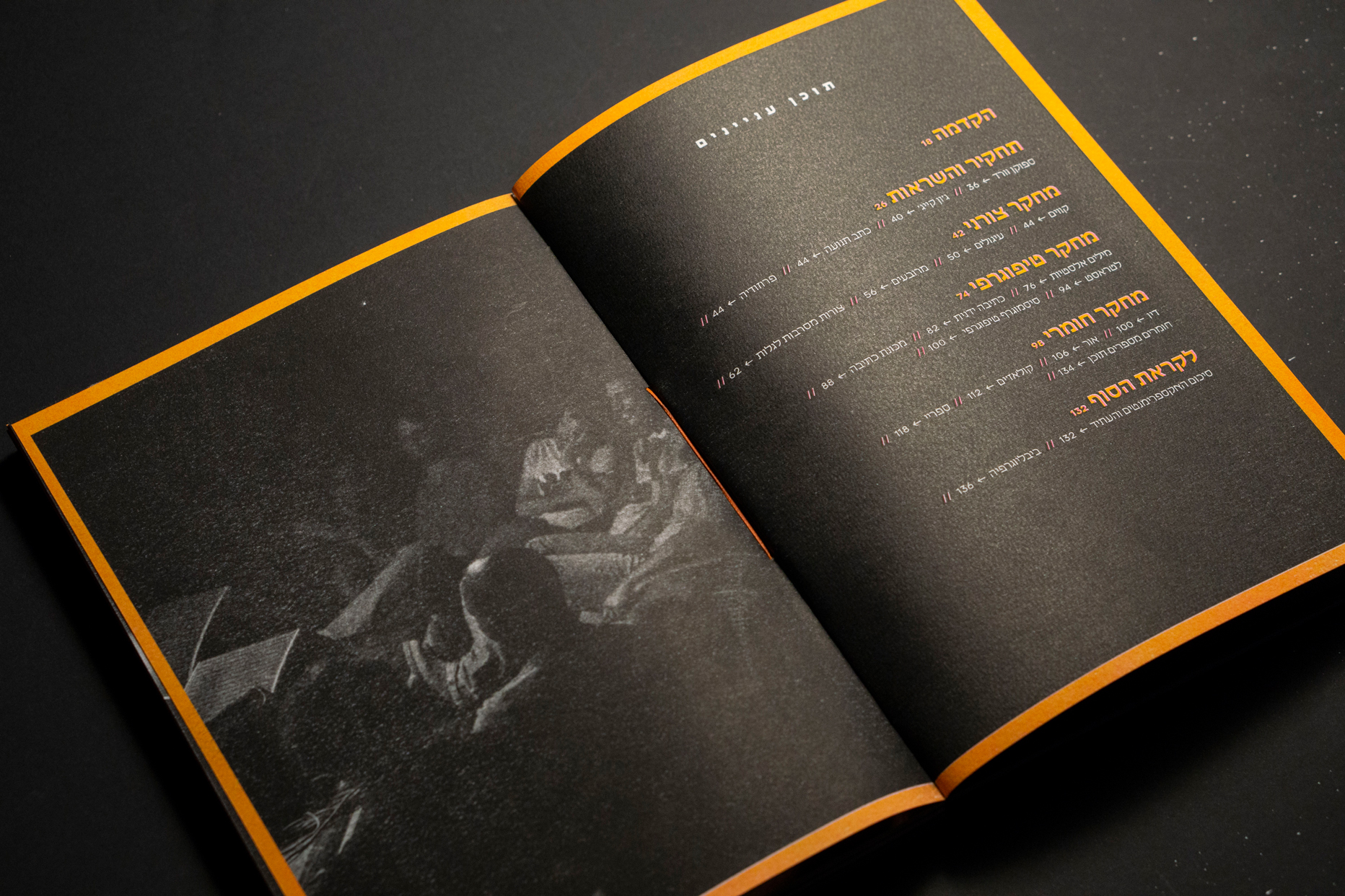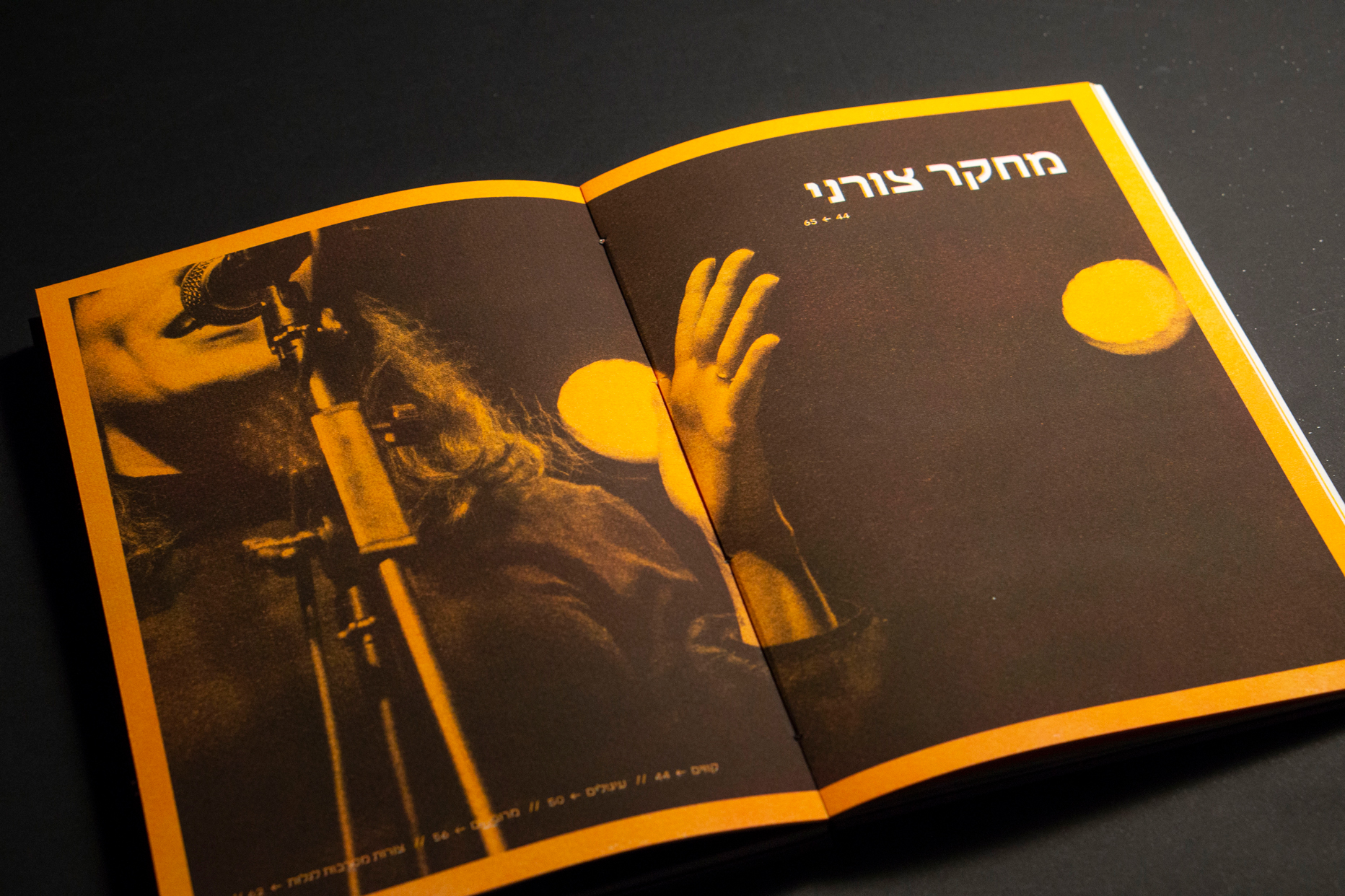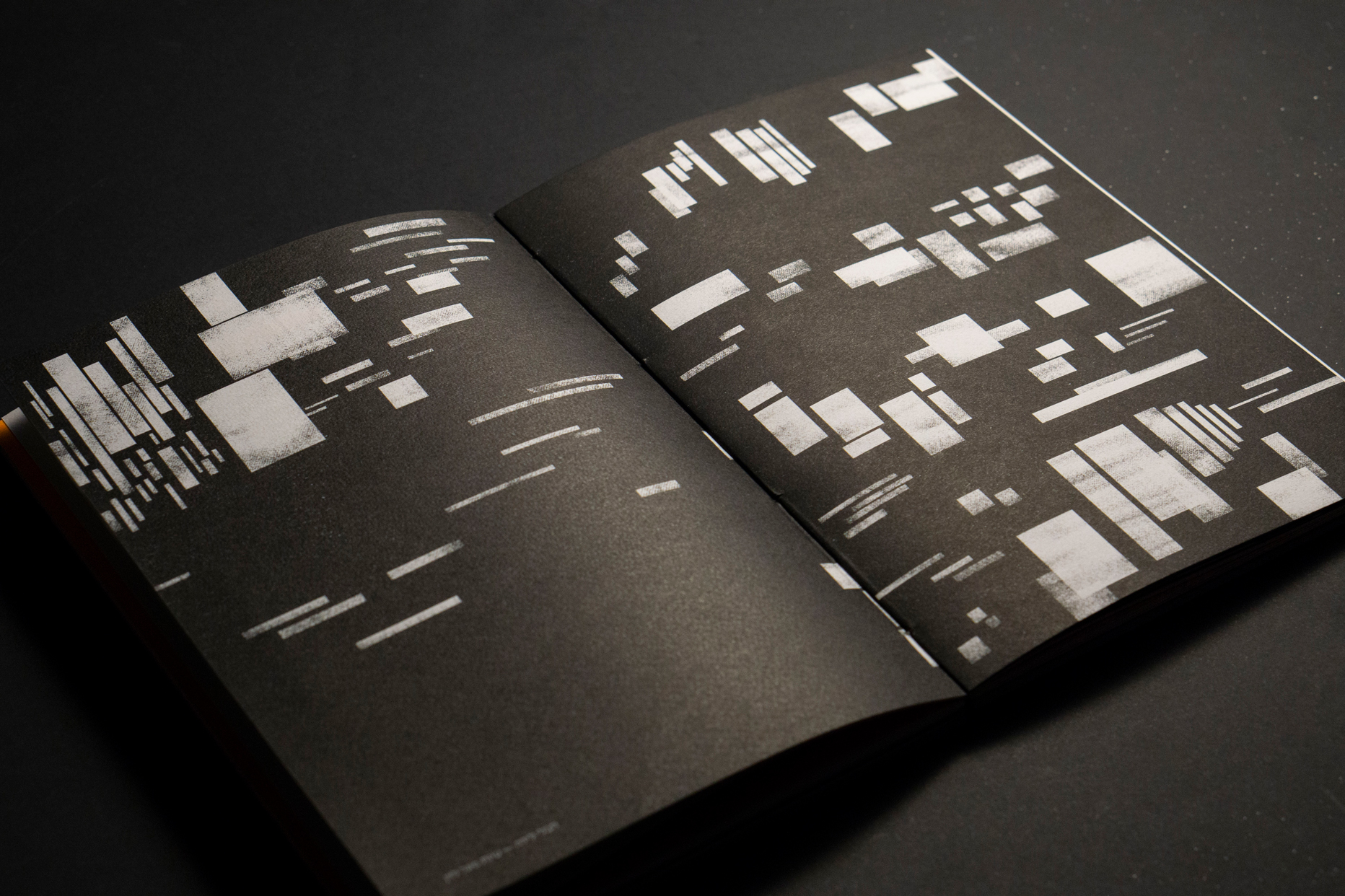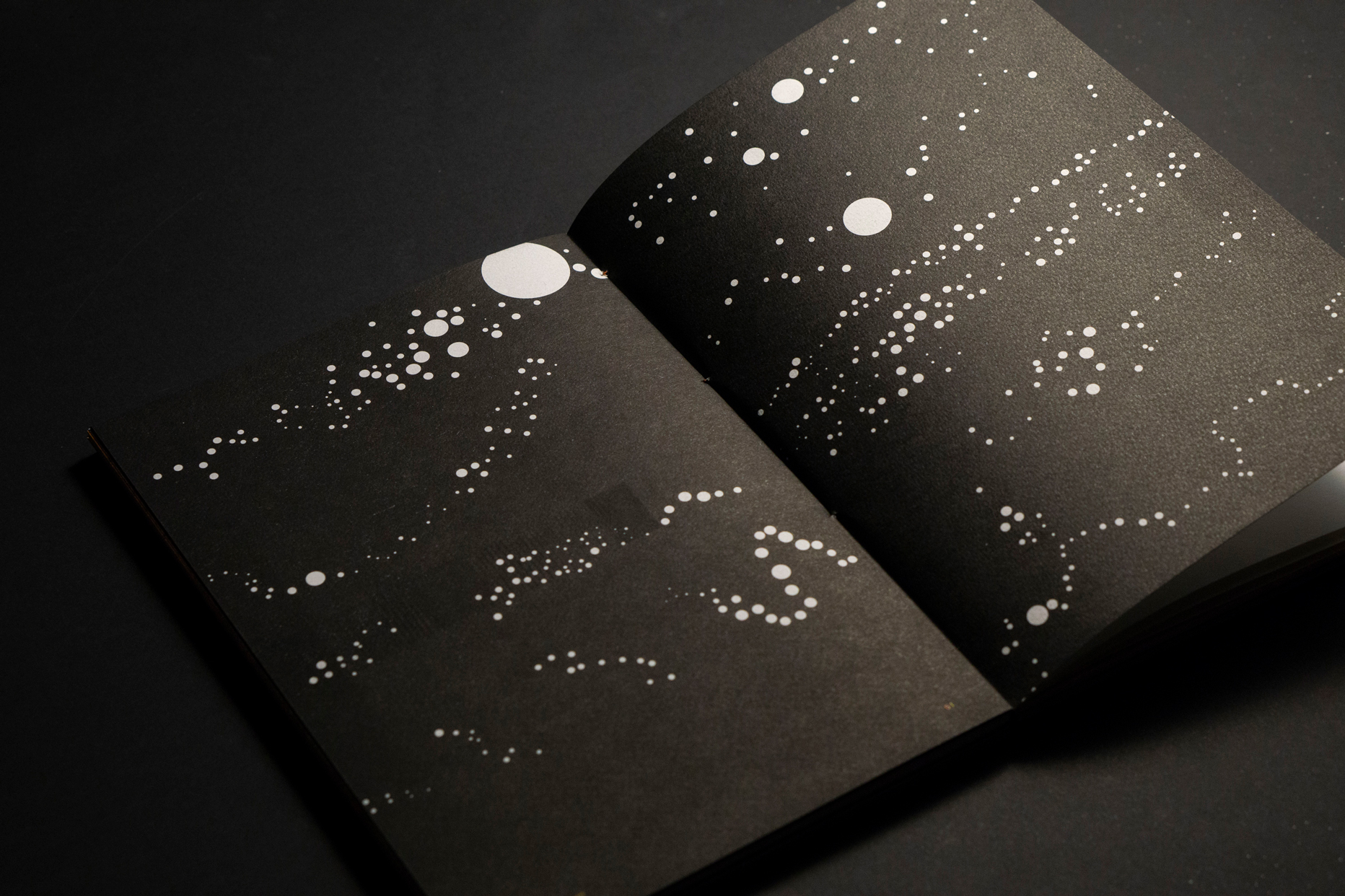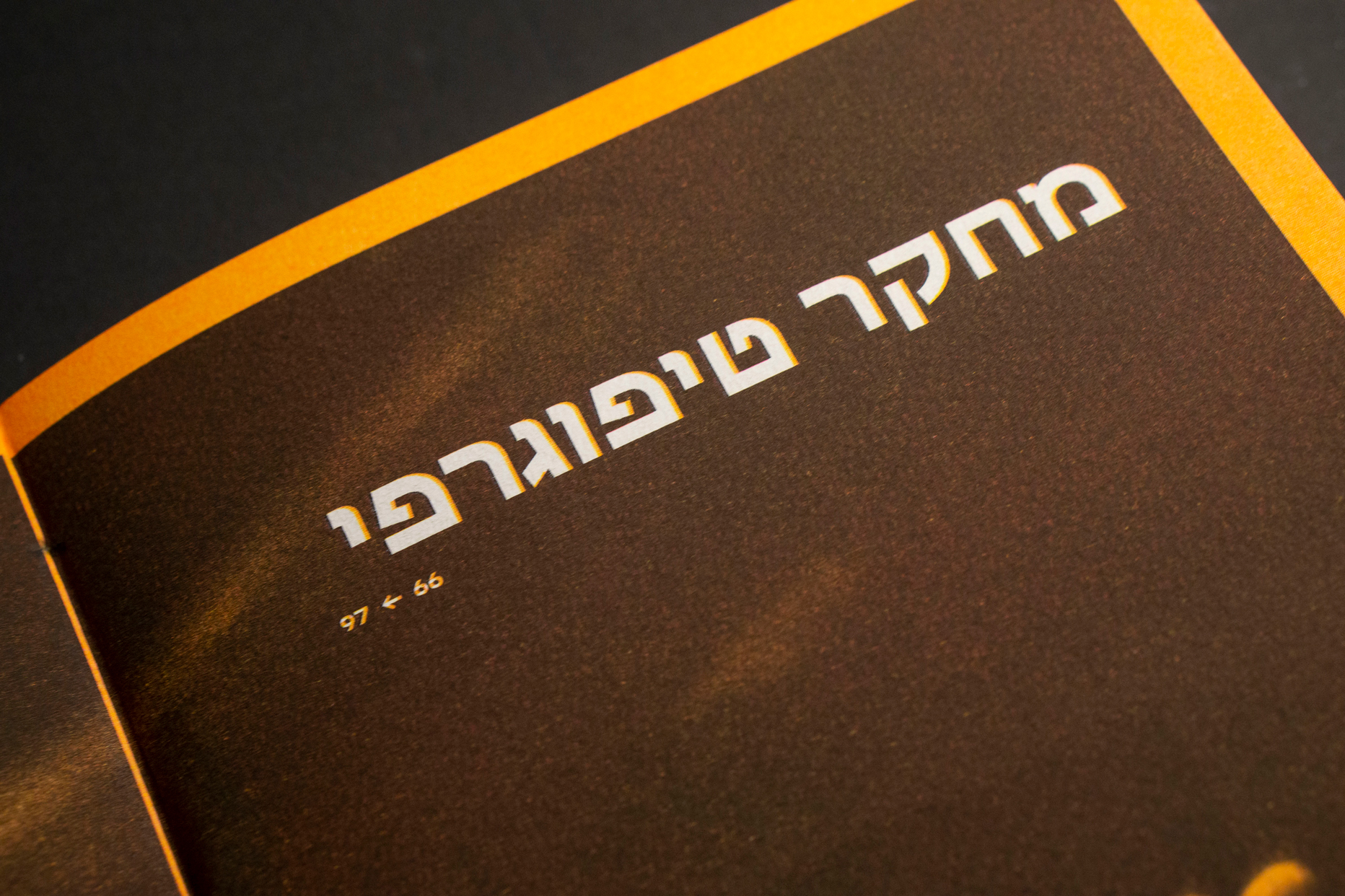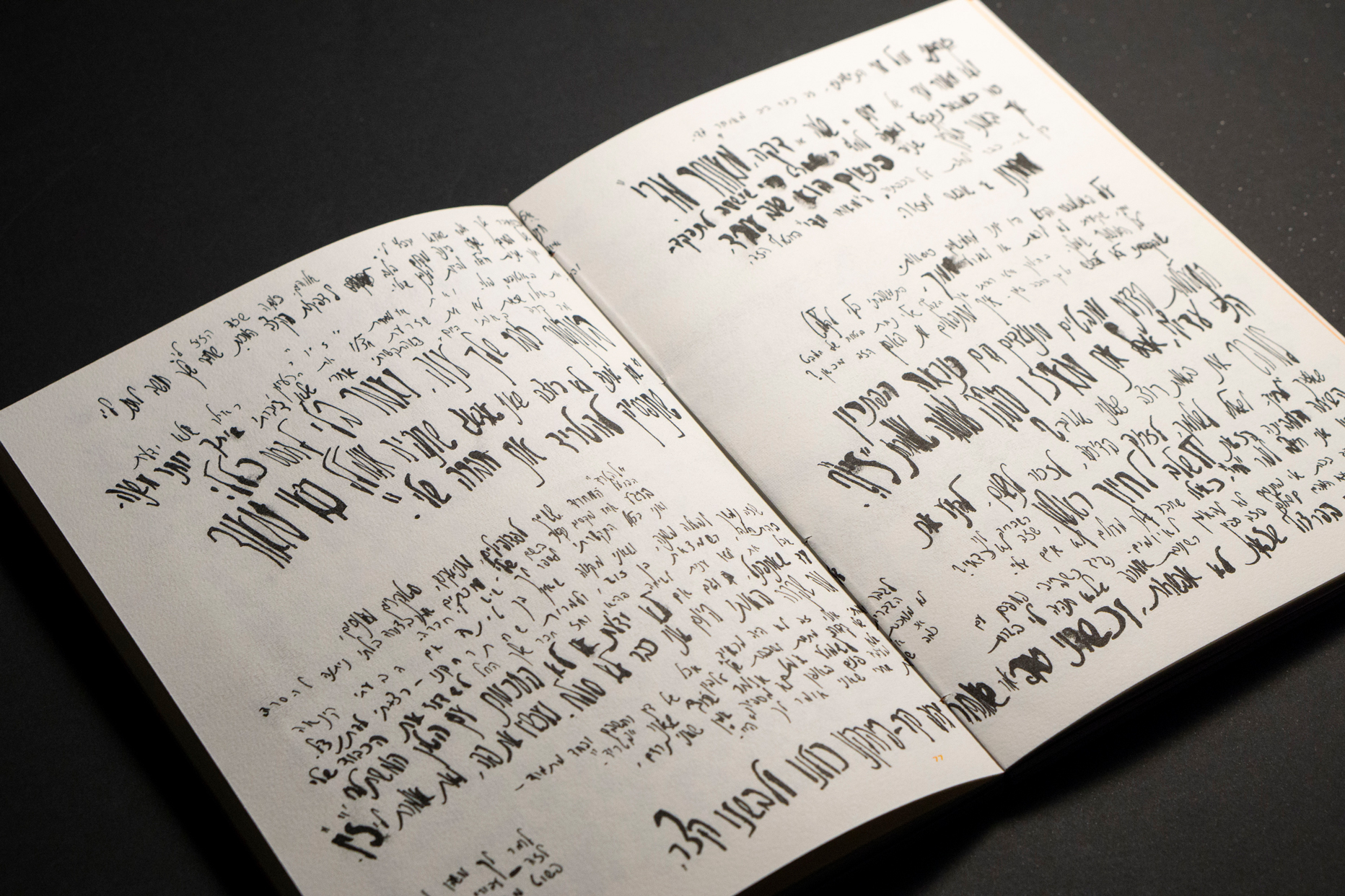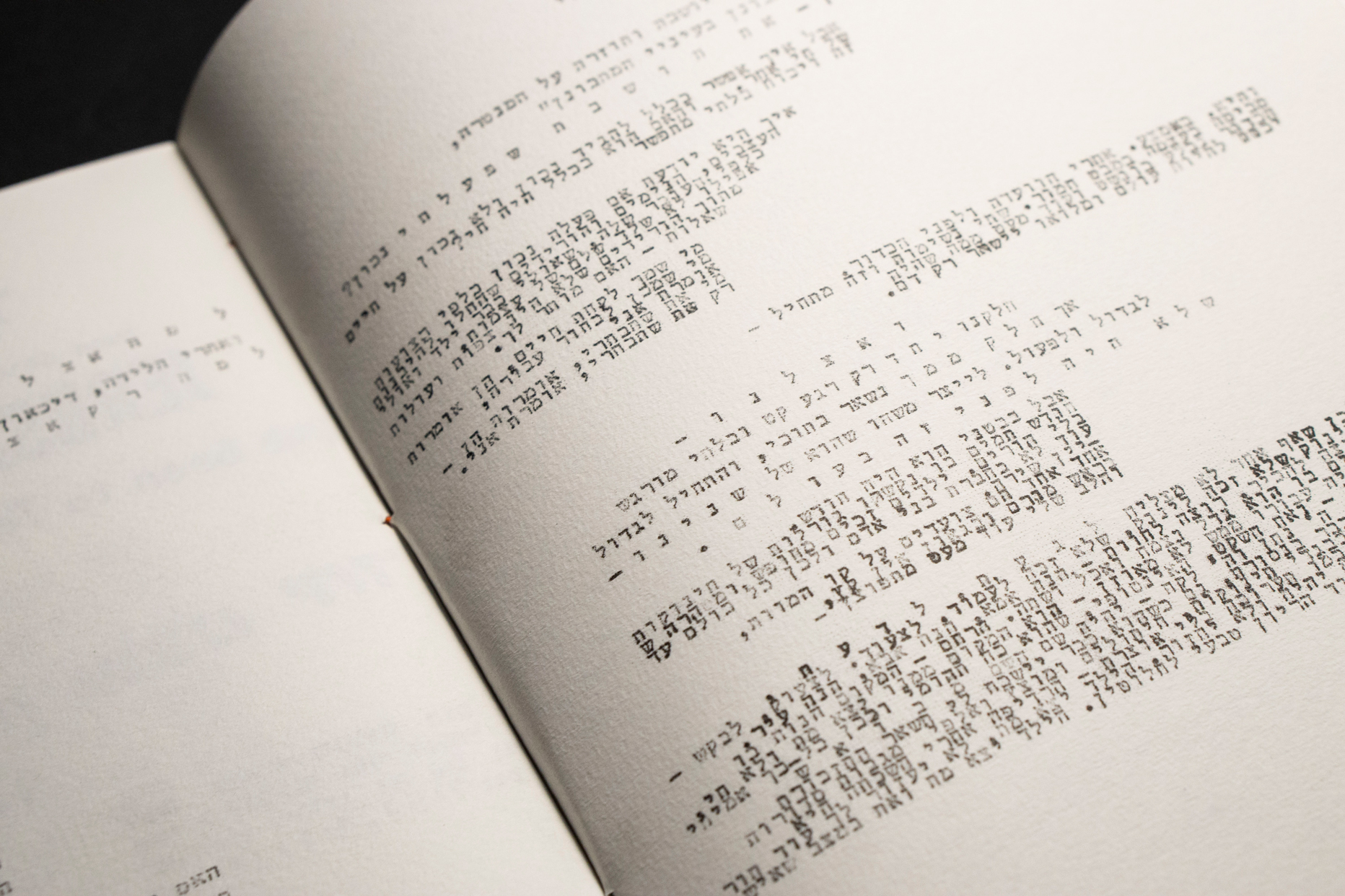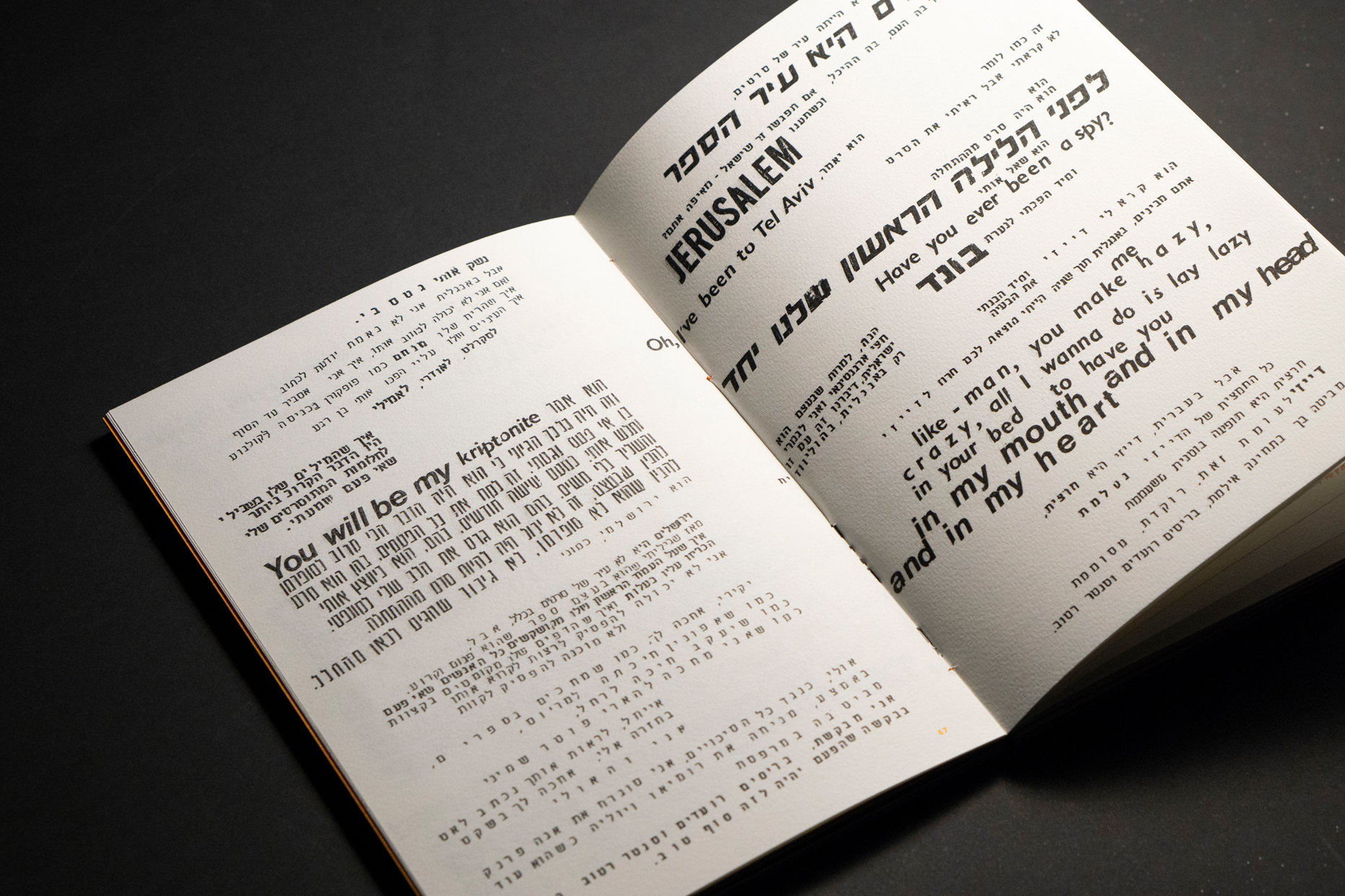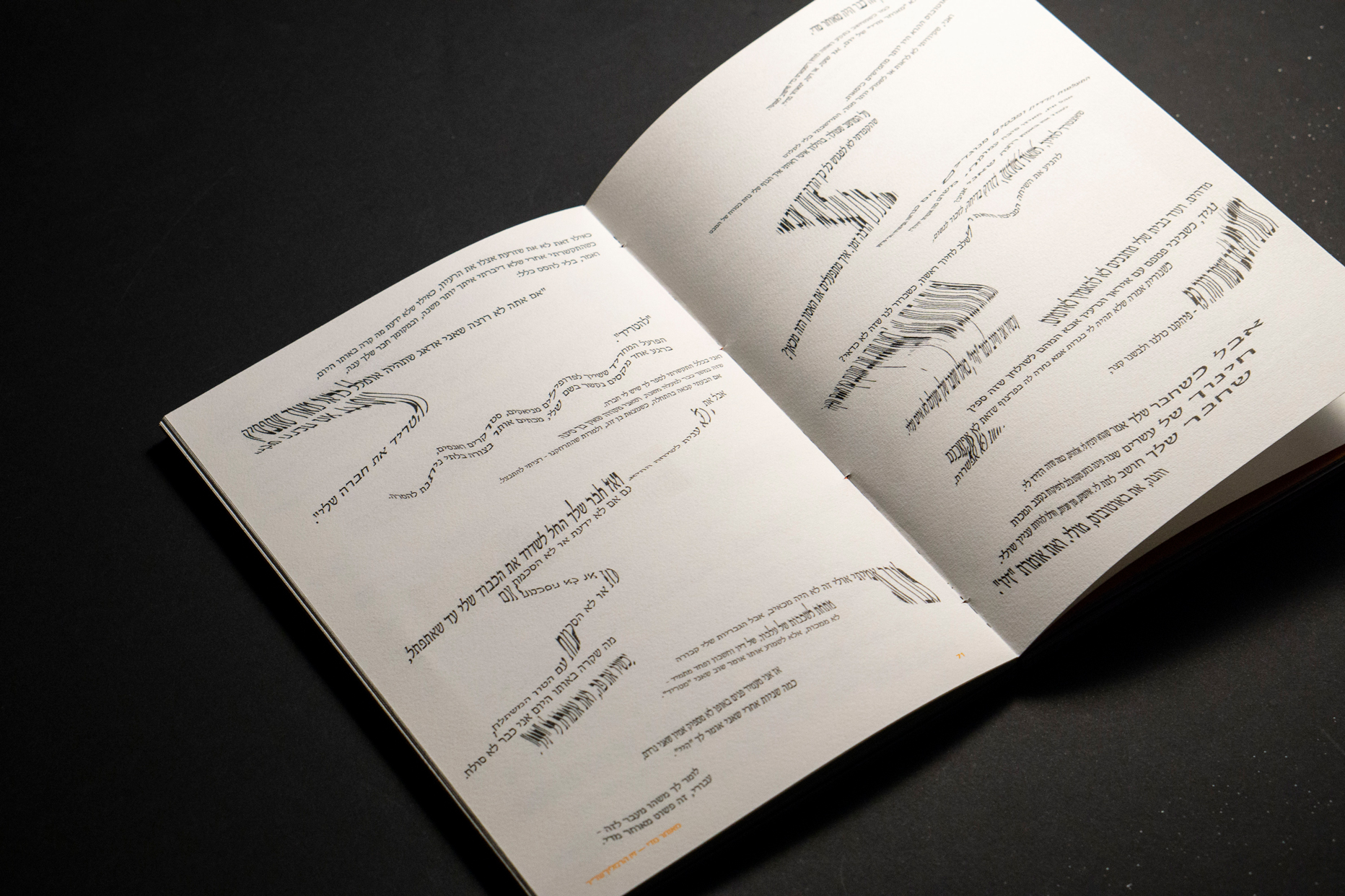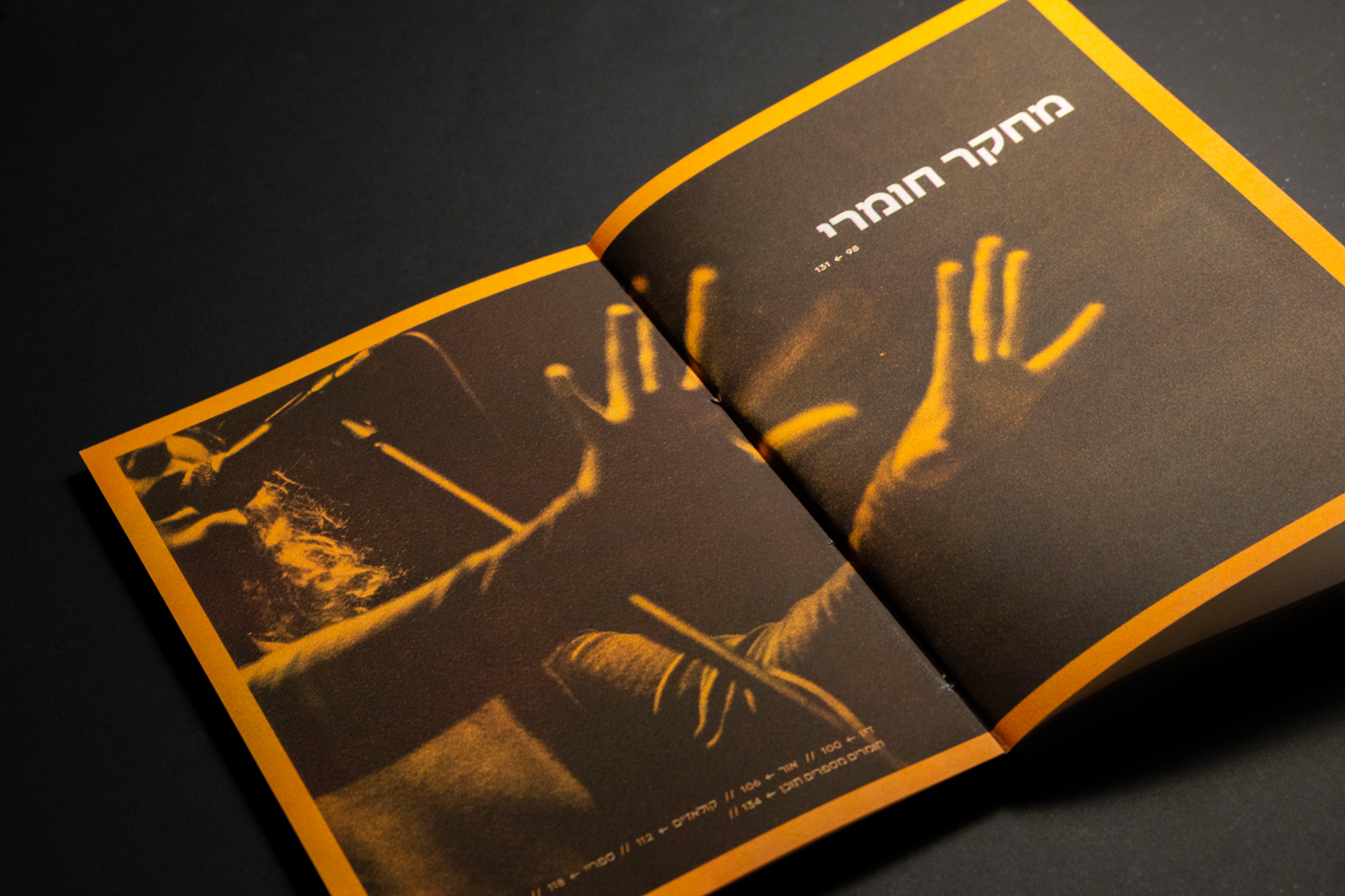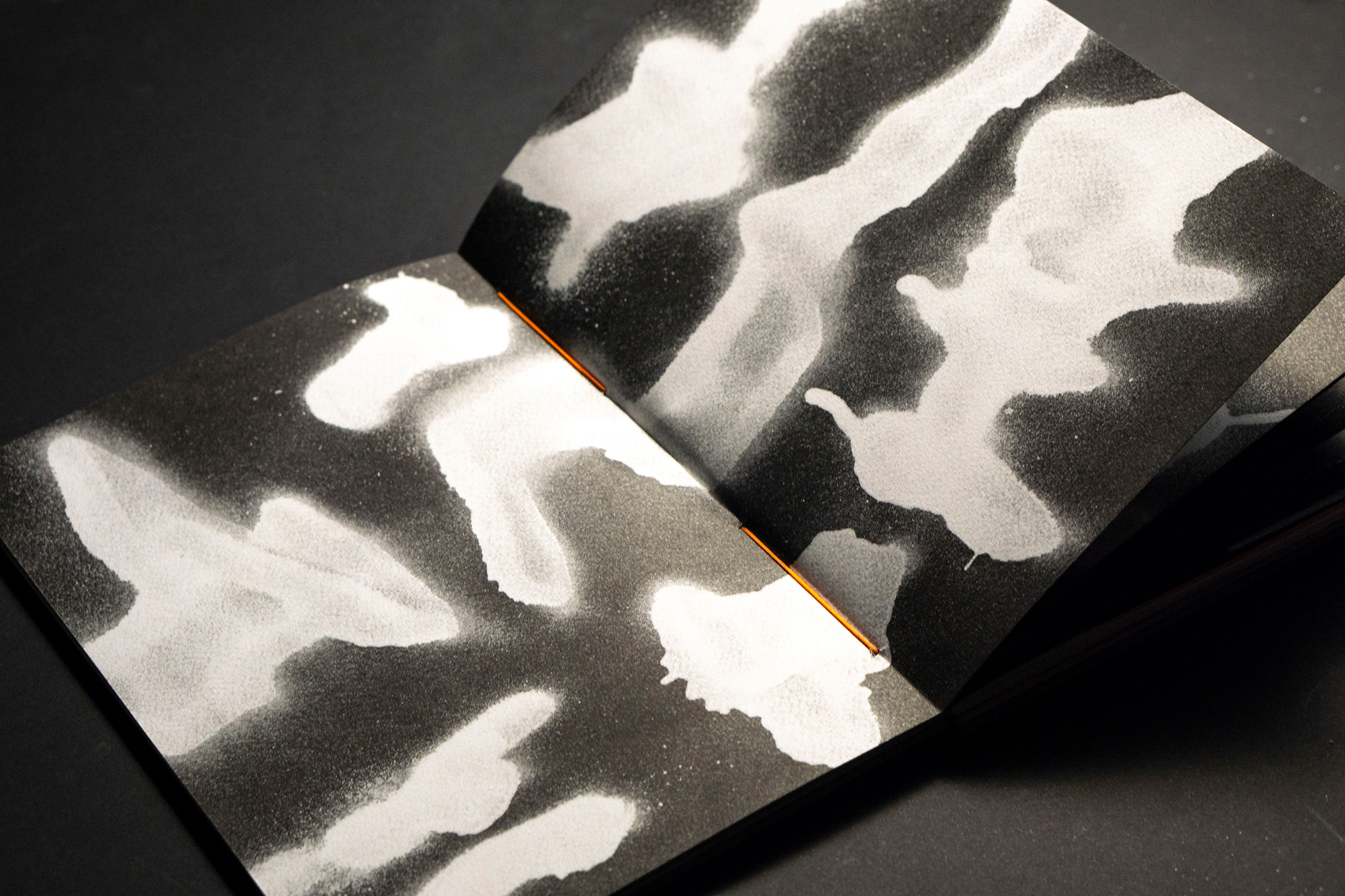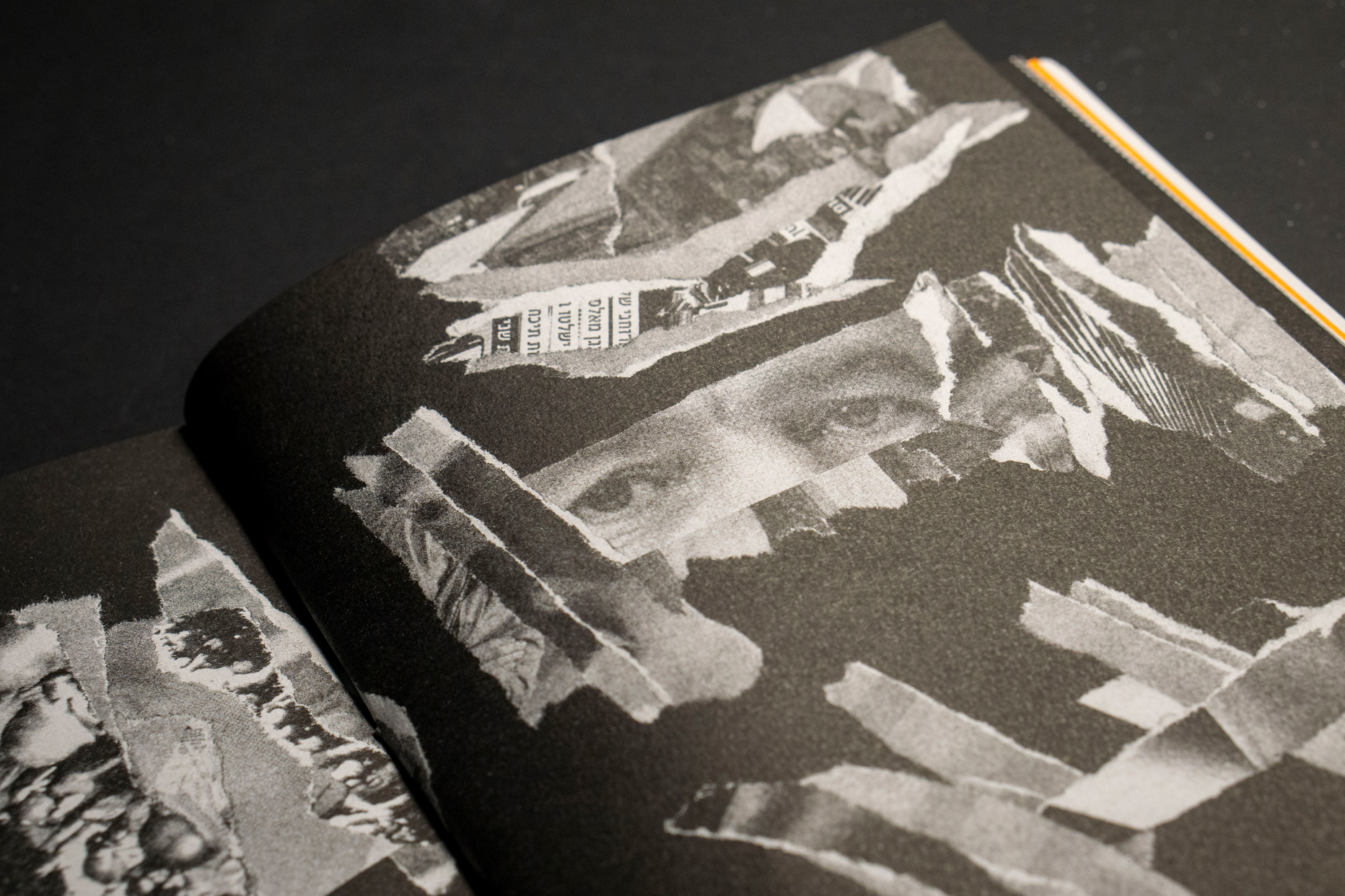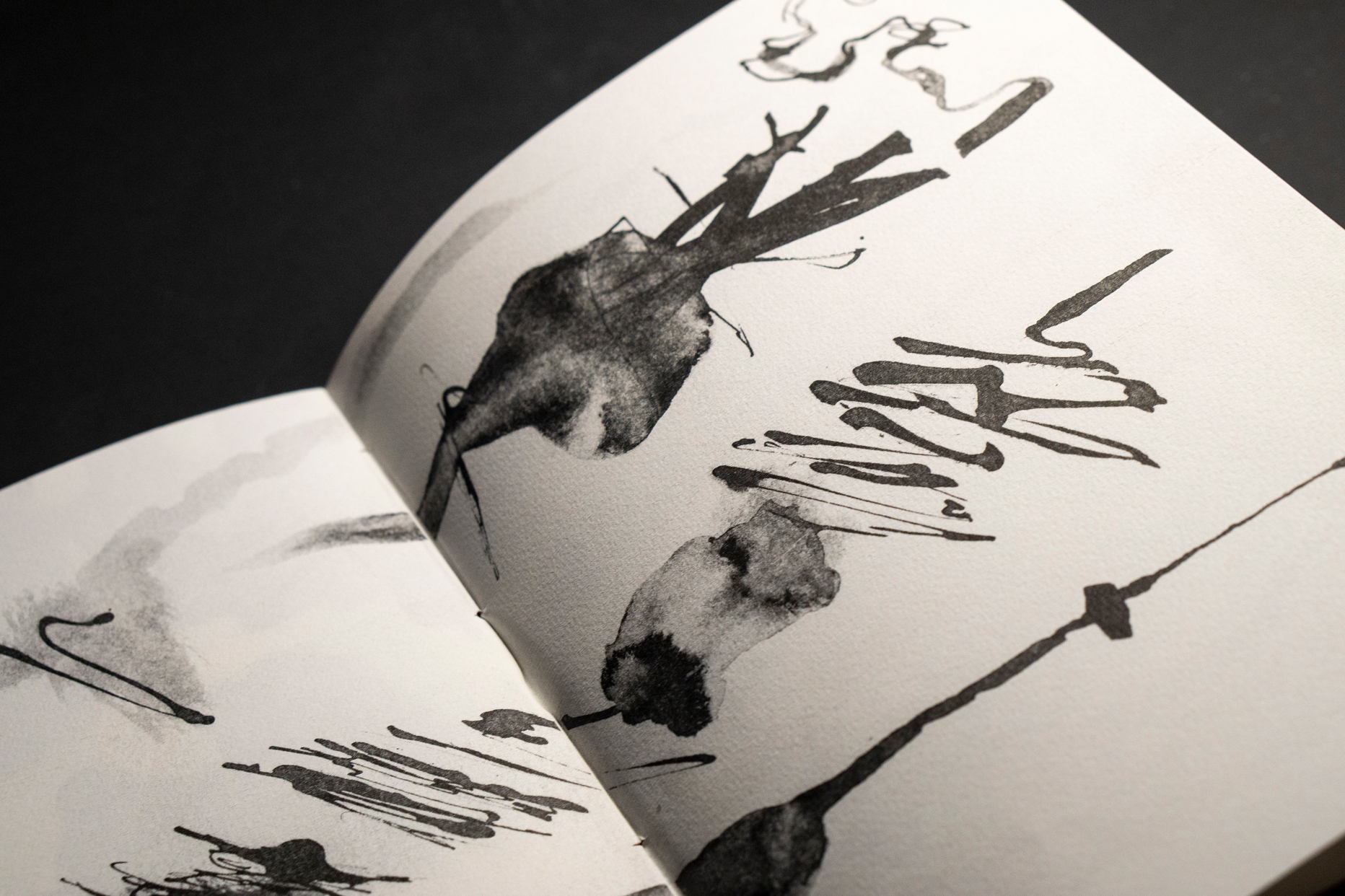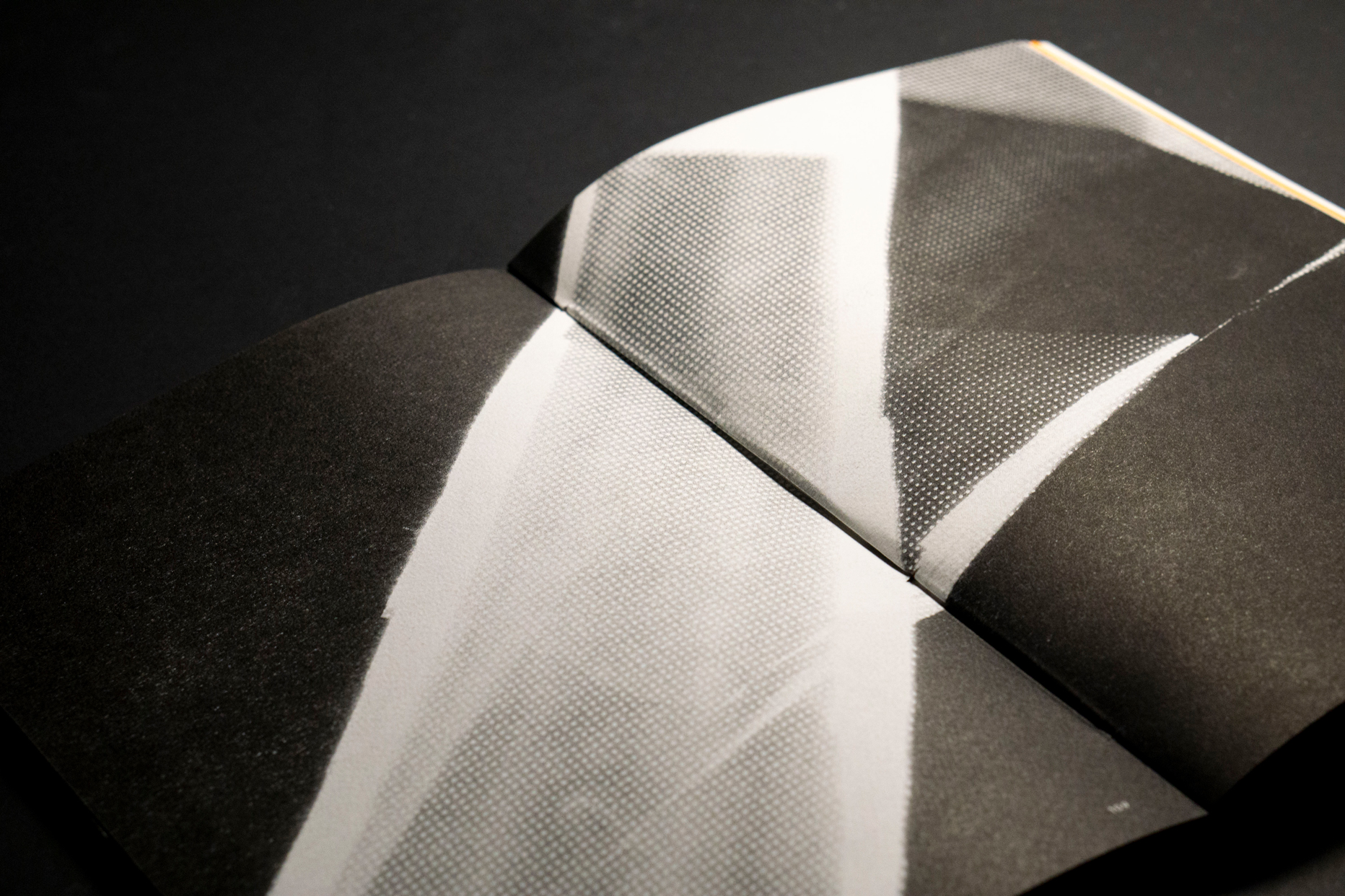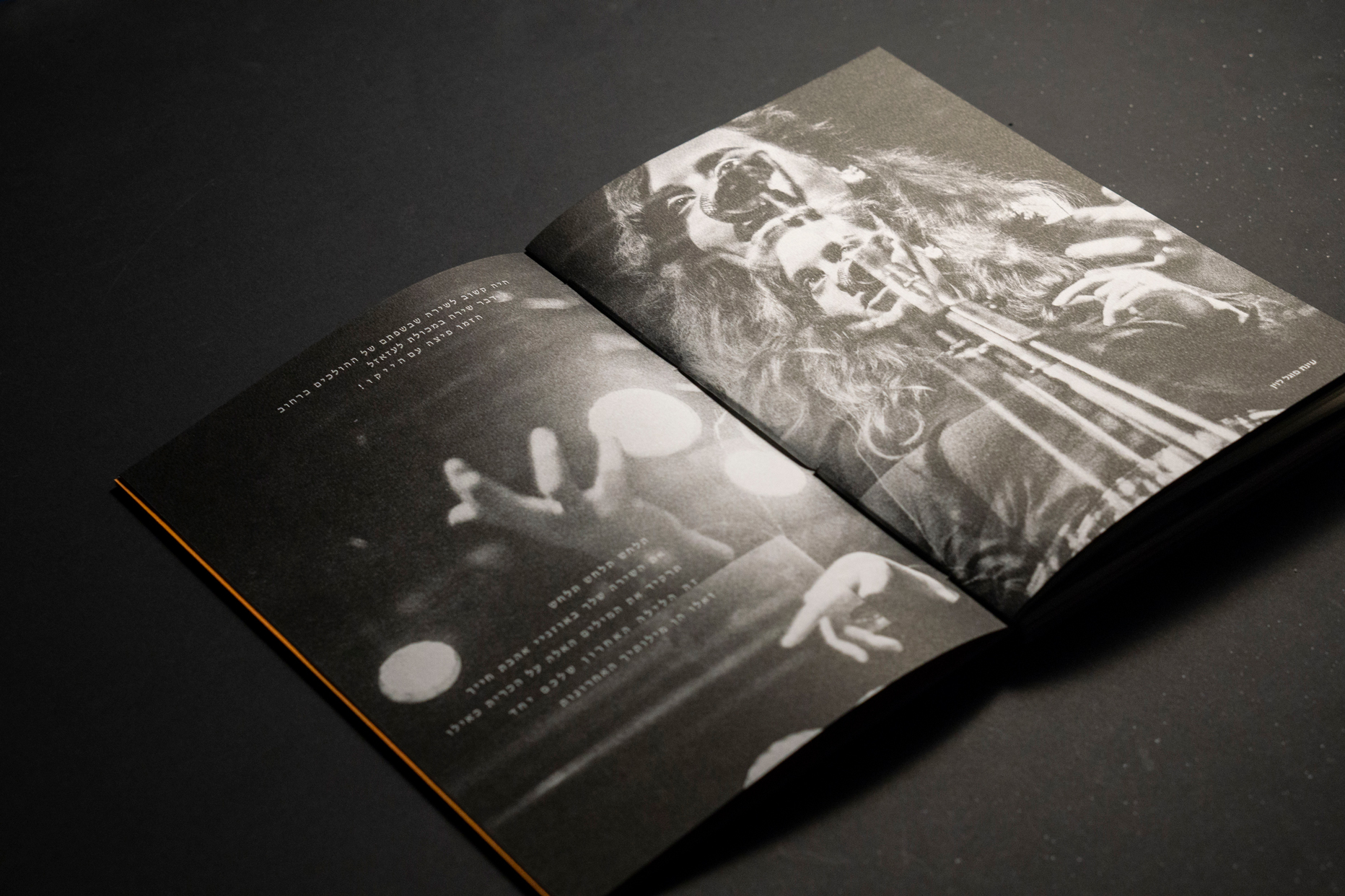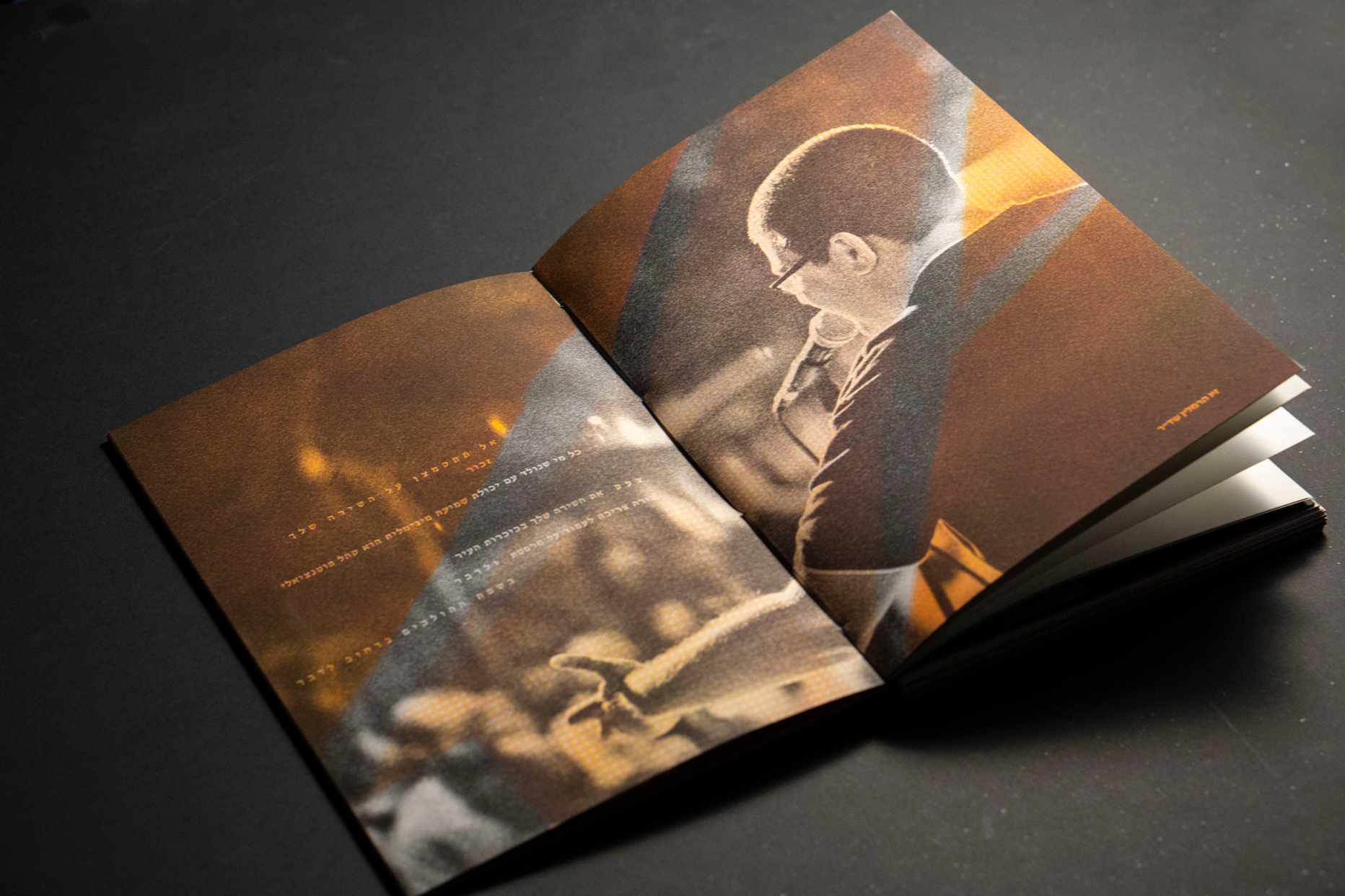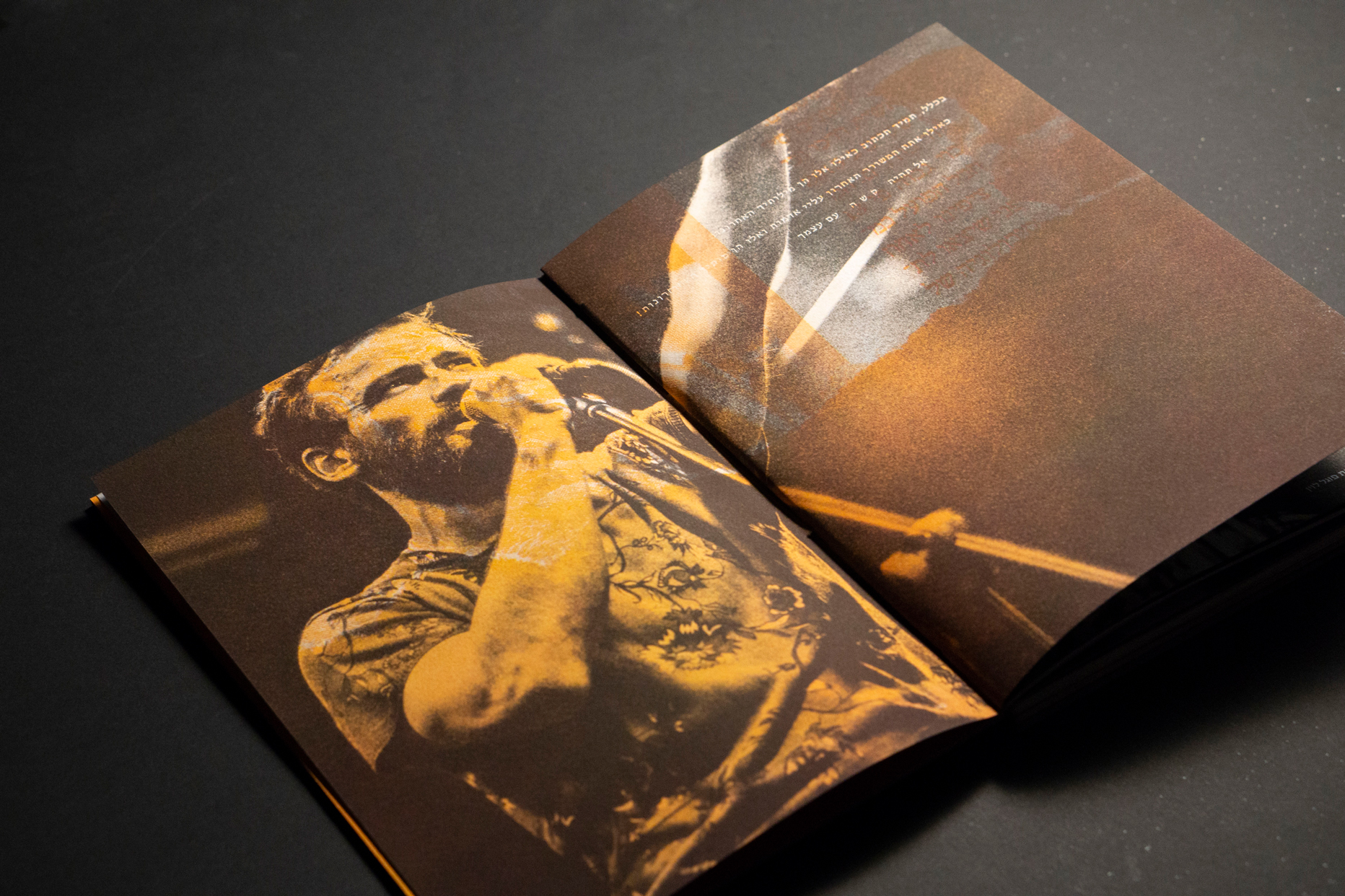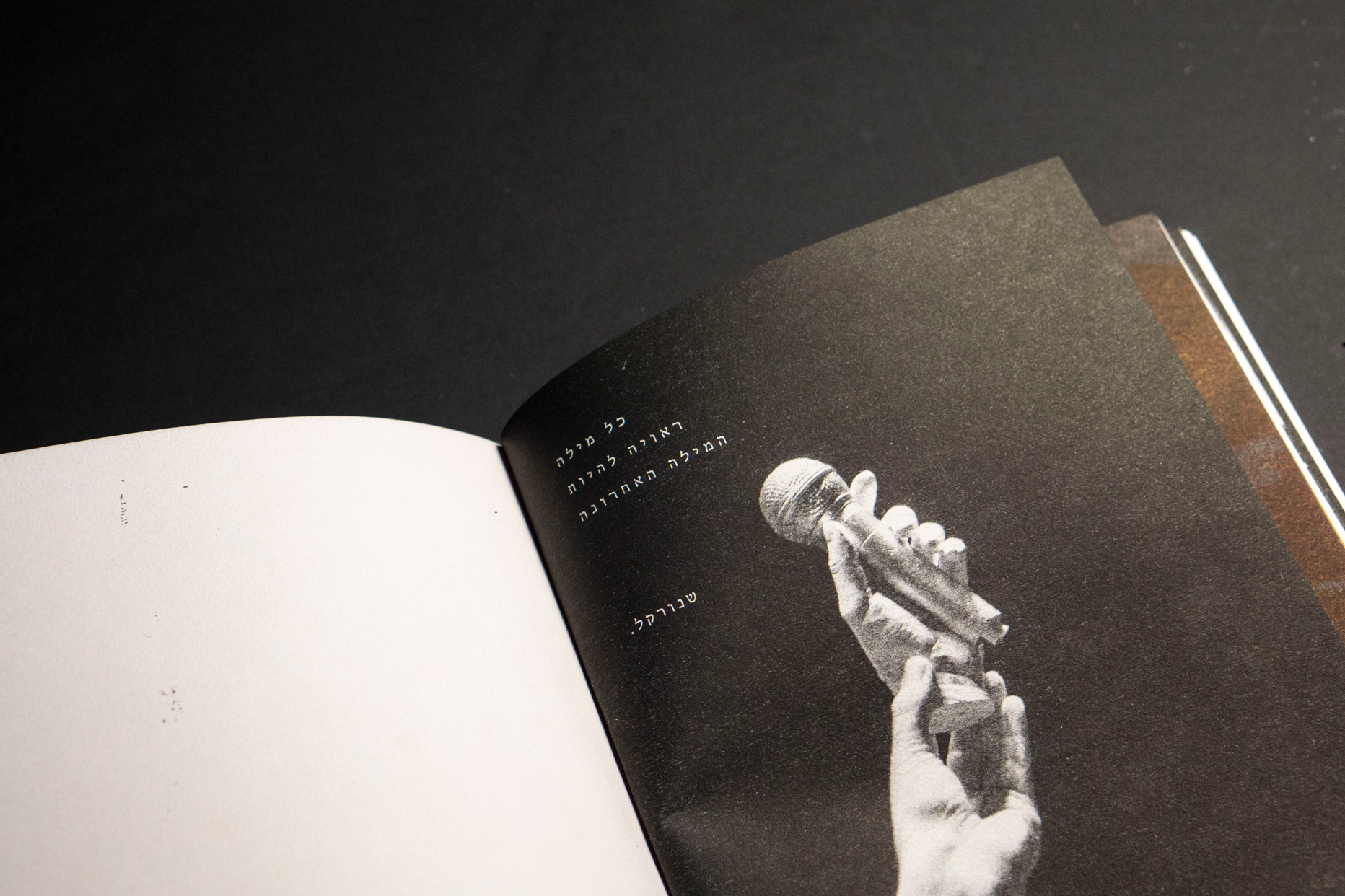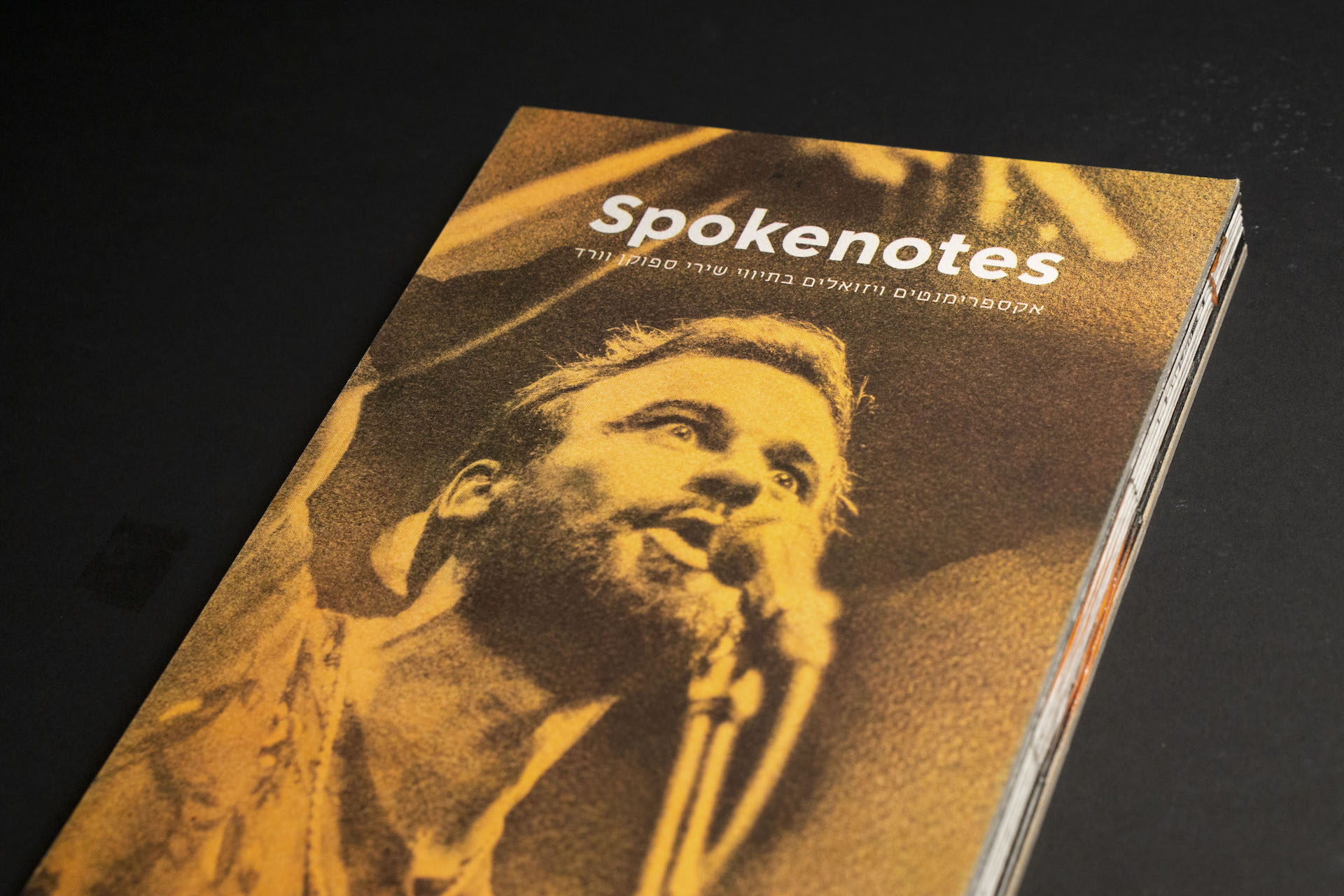
Spokenotes
Spokenotes
Spokenotes is an experimental notion project that researches the visual transformation of Spoken Word poems from the stage to the page. The research tests three spoken word poems over several parameters and spreads over three disciplines: formative, typographic and physical research. The final outcomes are bound in a book. It was submitted as a final project in the department of visual communication, Shenkar.
Spokenotes is the first book in Hebrew that printed by Risograph printer.
Spokenotes is an experimental notion project that researches the visual transformation of Spoken Word poems from the stage to the page. The research tests three spoken word poems over several parameters and spreads over three disciplines: formative, typographic and physical research. The final outcomes are bound in a book. It was submitted as a final project in the department of visual communication, Shenkar.
Spokenotes is the first book in Hebrew that printed by Risograph printer.
Therefore, in Spokenotes I experimented 3 spoken word poems of three poets that I thought that represent of the spectrum of Hebrew spoken word poems: "Daisy" of Tchelet Zohar, "It's too late" of Ziv Hermelin-Shadar and "Birth cords" of Einat Fogel-Levin. The poems are organized from the lighter one to the heaviest, emotionally and sensually. All poems were performed several times on stages over the country and can be found online on YouTube.
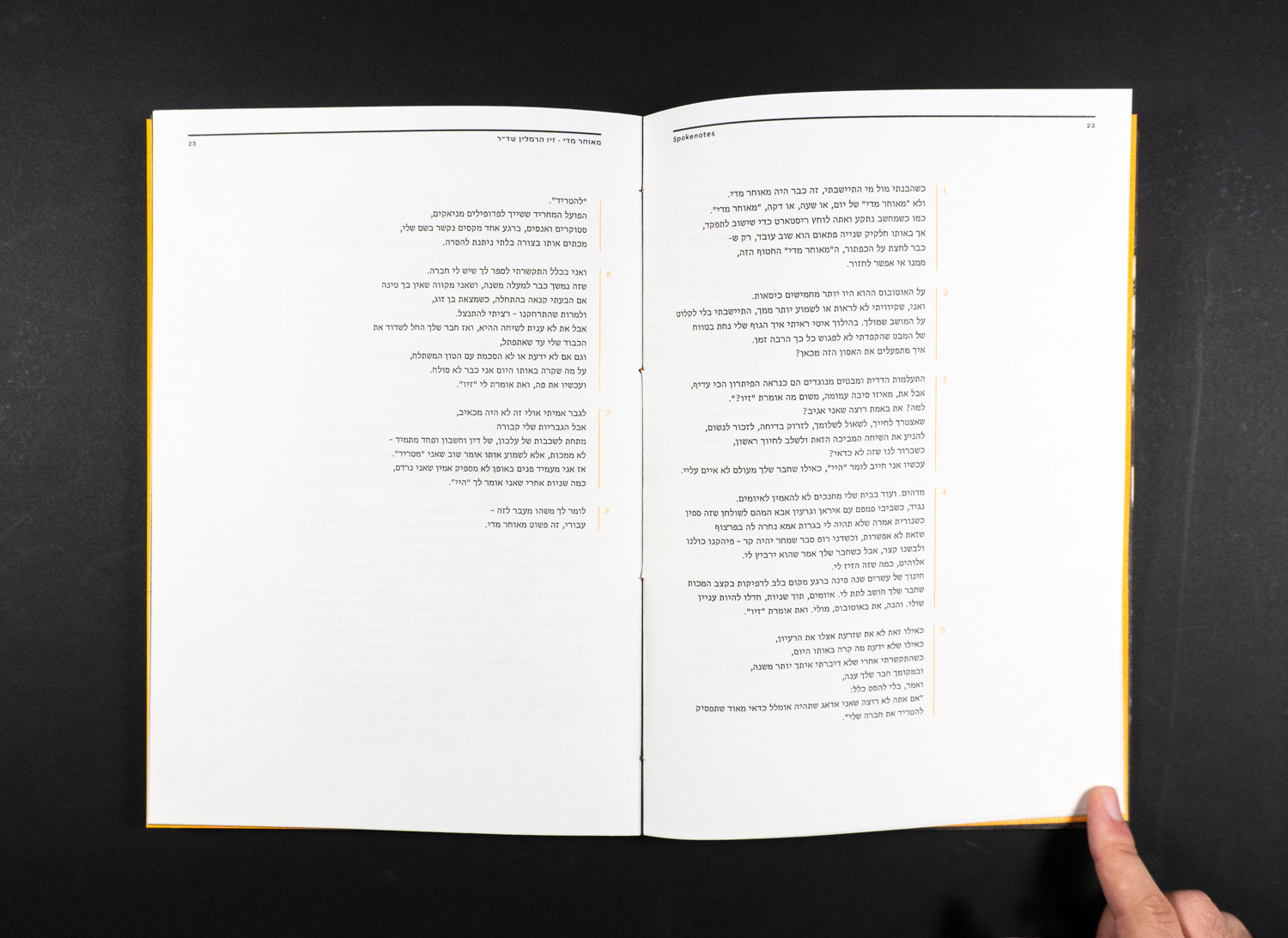
In the past few years, I flirted with spoken word poetry. In October 2017, I launched "Sdakim", a solo exhibition of 12 linoleum prints inspired by Spoken Words poems of 6 poets. For the exhibition, I designed a fanzine that bound it. When I designed it, I ran into a problem – when put on a page, the spoken word poems lose some of their elements from the stage. The drama, the small pauses, the intonation, and the prosody – all were lost. In the transformation of the poems from the stage to a printed text, I realized what a complex process it is. As in translation of a text from one language to another, some elements are lost; the same was with spoken word – the intonation, the emotion, and the acting of the poet does not reflect in a written text. Spoken word is meant to be performed on a stage, but it is originated in a text written by hand or on a computer.
Therefore, in Spokenotes I experimented 3 spoken word poems of three poets that I thought represent the spectrum of Hebrew spoken word poems: "Daisy" of Tchelet Zohar, "It's too late" of Ziv Hermelin-Shadar, and "Birth cords" of Einat Fogel-Levin. The poems are organized from the lighter one to the heaviest, emotionally and sensually. All poems were performed several times on stages over the country and can be found online on YouTube.
In the project, I created for each poem experimental notion attempts according to a specific performance. The project is divided into three visual research disciplines: formative, typographic and physical research. Each poem was analyzed according to four main motives: intensity, speed, pauses and highlights. At the end of each visual research chapter there is a summary and explanations about the choices that were taken in different stages of the work. In chapters where I experimented the spots[TR1] (e.g. in the formative in physical chapters), the experiments were made according to the division of the verses.
The research started by checking which notion types exist today in various fields. I looked at the book "Notions" by John Cage (1969). It screens over 300 experimental notion types in music. I also looked on "Movement Notion" by Noa Eshkol and Avraham Wachman, in which they suggest a notion method for the language of dance.
The last discipline that was included in my research was prosody; I found it very relevant to the typographic research, although it is not expressed visually. Prosody is how we express ourselves verbally, what message we deliver.
Special Thanks
My dear beloved mom, for re-attaching my wings and filling my engines with fuel after I fell.
Grandpa and grandma, which have no clue what this project is about, but they always make me feel proficient. Grandma, you were right, knowledge is power.
Asi, Nivi and Michael for sending love and inspiration in the exact moments.
Meirav Shacham and Prof. Yirmi Pinkus, for their focused, sharp and exact notes. It is not obvious, and I value every moment of your guidance. Thank you for the joint journey, you are cherished in my heart.
Einat, Tchelet, and Ziv – beyond being great poets, they are a constant source of inspiration. Thank you for letting me to knead and to pour back your words.
Ziv Amar, for the wonderful photographs.
Arik Eber, for the friendship, the inspiration, and the poem that wraps the book.
Substack
Don't Be a Stranger
Uncoated Magazine
All rights reserved © Tal Solomon Vardy. 2025
All rights reserved © Tal Solomon Vardy. 2025
